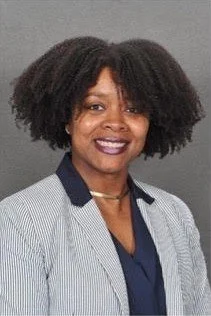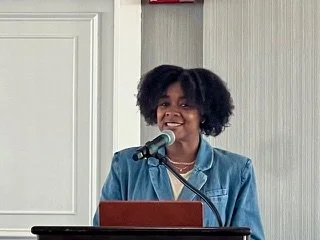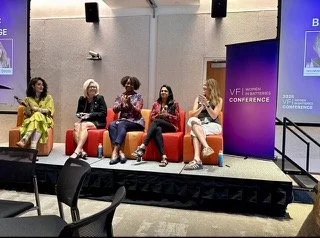Part 3 of The Impact Series: Pamela Fann, Founder of Integrated Solutions
In the final installment of this three part series, Pamela and I discuss what it takes to break into the energy sector. We explore what she envisions for the future of clean energy and what is happening right now around the world that is creating the footwork for that image.
MTGS - What advice would you give to inspiring entrepreneurs that want to break into the energy sector?
Pamela Fann - It’s not for the faint at heart. There are a lot of companies that started in this line of work within the last year or two under the promise of the Bipartisan Infrastructure Law and the Inflation Reduction Act. And unfortunately, I’ve seen a lot of those businesses shut their doors this year because the federal contracts they were awarded have been cancelled. My company experienced this as well. We had several of our federal contracts canceled because the word equity was written in it or it was for a community and had benefit plans attached to it, meaning that communities get to have decision making and agency over what energy projects that they see happen in their communities. Prayerfully and thankfully, not all of my contracts were federal contracts. I had other contracts as well that I’m still administering, but it’s a tough time in the energy sector.
Those of us who are out here doing this work, finding channel partnerships, understanding your value and what you bring to the table, finding partners who believe in your work and who are willing to give you a chance to prove how well you can do the job is what’s going to be important. But it’s also going to be hard. You must have thick skin. You have to be ready for the no’s or the not right nows, because it may start out as a no, but once you continue to show the proof points of your work and continue to do work, those no’s sometimes come back around to become a let’s see.
You just have to have a lot of resilience, and I know folks get tired of that word, especially minority owned businesses. Whether you’re a woman owned, Black owned, a veteran owned, or you’re a minority owned business, you have to stay resilient. Stay resilient, and the opportunities will come. But I get it. You really get tired of being resilient and you want the opportunity, just like anyone else gets the opportunity, but it is reality. That we must stay resilient if this is what you want to do.
I’m starting to look at it a little bit differently now. When I started my business, I envisioned that I’d turn this business into a large scale company then 25 years down the road, sell it to someone who’s just as passionate as I am about doing good in the world through energy and seeing energy burdens go away. You know, it’s the most basic, simple thing. We want to see all people with electricity that is affordable. To me, that’s not a hard ask, and maybe somebody else will see that and want to buy it. But now, my vision has been refocused on truly helping communities one by one. That might not mean a big paycheck, or it might not mean a big contract. I think that if it means a healthier community, that I’ve helped to contribute to in one way or another, then I’m okay with that. That is my passion and purpose behind this work. It is to ensure that I’m doing my part in ensuring that communities are healthy through clean energy work and providing them with the resources and knowledge. I do the work that they may not know about. It’s now my purpose to make sure that it is done. So yes, I’ve done a little bit of refocusing and not thinking so much about the bigger picture, but thinking about the smaller picture, what you and your business can contribute.
What I would offer to other businesses is just go back to your value statement. Why are you doing this? If you were in it for the Federal paycheck that came with it, that is no longer there, then maybe this isn’t for you. But if you’re still in it because you see the value in doing this work, who it supports, and who’s going to benefit from the work that you do. Then grit your teeth and let’s continue to go.
MTGS - All right, one last question. Looking ahead in the future. The year is 2050, what is your vision for the energy sector?
Pamela Fann - The energy sector people may get tired of hearing this word, but that it is equitable. That it’s cleaner. That we’re not seeing such disparities as have and have nots. Right now, we see a community that has electrification, transportation, electrification, and EVS and EV charging infrastructure, and then a community that lacks any of that. It that (lacking) community that’s bearing the brunt of climate change and has more CO2 and greenhouse gas emissions. They are the ones suffering higher asthma rates and related health issues because of the lack of clean systems. That’s why I’m hoping that this work that I’m doing is reforming that and others will make the commitment to reforming. Where we don’t have families who have to choose between paying their utility bill and buying medications. That they have an option of having community solar, where they can sell some of that back to the grid, and have a little bit of money in their pockets. That we see communities globally where children are going home and don’t have to wait until it’s daylight to do their homework because they don’t have power. Changes in communities where women are cooking on dangerous cooking systems because they don’t have the infrastructure are improved so they are able to safely cook their families a good meal.
There’s so much into this that I could say, but by 2050 those commitments that countries have made for cleaner, cheaper energy systems that everyone has access to, that’s important. Everyone should have access to it. No one should be without power. In this day and age, clean drinking water and power are what we consider basic needs. But yet, almost two thirds of the world are without it. That’s a problem. So, whatever I can do to help communities, not just here in the States, but globally, to benefit from these systems that folks have gotten rich off of for so long. Some people have not seen the benefits of it whether that’s through lack of jobs, through lack of access, or through just being able to live healthily, then that’s the change I want to see by 2050.
Commitments and actual progress are being made because we’ve been talking about it for a long time but still we’ve got a long way to go. We’re coming up on COP 30. So however, I can help contribute to that, through my business, my voice, or my work, I’m in.
It’s inspiring when you go to cities like Bern. You walk into the hotel that’s over one hundred years old. The lights are dark in the hallways but as you walk through, they cut on because they’ve been upgraded. It’s inspiring when you start seeing sustainable living in countries who are committed to it like Norway. No one’s driving cars but instead riding bikes. It’s then you see the systems work when you start implementing them.
I was just in Addis Ababa for the Africa Climate Summit; they were talking about the rollout of electric vehicles there. A Japanese company, BYD, makes these wonderful electric cars that are cheaper to own. They make them affordable for everyone. As I’m driving down to the conference on the electric city bus, I’m passing this bank of electric vehicle charging stations, about twenty of them on each side of the highway, and there’s lines of cars. People lined up to go and charge their electric cars. This is in Addis Ababa, Ethiopia. If they’ve made the commitment to going to electric cars by 2030, why can’t the United States do this? Or why don’t people here see that we are falling behind every other country in our advancement of renewables and clean energy?
I know the US has pulled back on its climate work. However, I was inspired while in Ethiopia that other countries have strengthened their commitment to this work. I’m happy to see them moving forward, and I know at some point we will move forward on that agenda again.
At the end of the day, capitalism is the reason we keep doing things the way that we do (in the US), because somebody has to make money off of it. As long as somebody wants to make money off of it, it’s going to be hard to erase. The people who are already really wealthy want to stay really wealthy, and they want their families to stay wealthy. That wealth is not coming to any of us down the line, but none of us can get away from the smog in the air or the asthma and health impact. So yes, I’m highly passionate about all this, because I see in other countries, in systems where this works for the people. I don’t understand why it can’t work for everyone, when I know that it can because I’ve seen it.
MTGS - Thank you so much today for joining me and giving me your insights. It’s always amazing to hear what you have to say, because your passion makes me excited. Climate and sustainability have always been a passion of mine ever since I was a little girl cleaning up the roadsides to make the earth a better place.
Pamela Fann - I appreciate you having me. It was a pleasure talking to you. Let me end with this. One of my mentors, Dr Mildred McClain, who’s the executive director of Harambe House/Citizens for Environmental Justice and is considered one of the mothers in the environmental justice movement, always quotes this Native American proverb by Chief Seattle “We don’t inherit the earth from our ancestors, we borrow it from our children.” We’re not fixing the world for ourselves. We’re fixing it for our children. We’re giving them our problems if we don’t start looking at solutions today. We can’t keep borrowing this earth from our kids and expecting them to clean up our mess.





